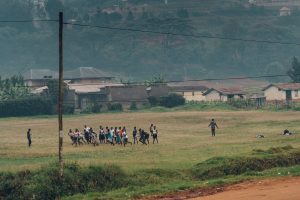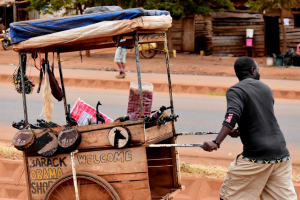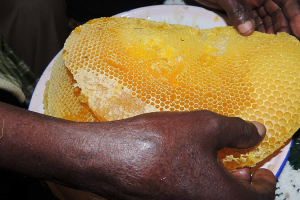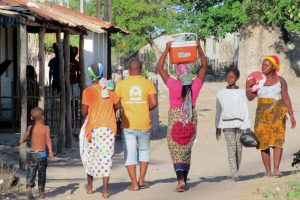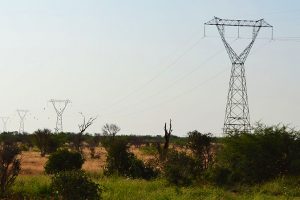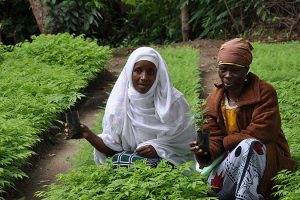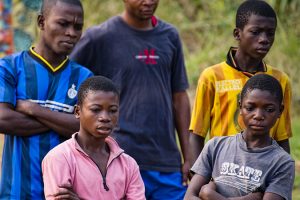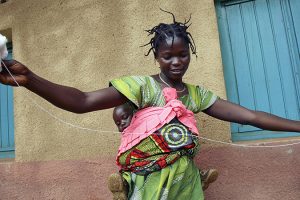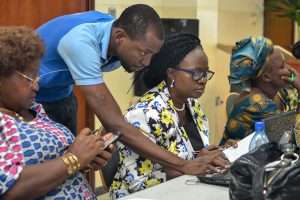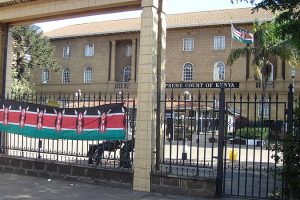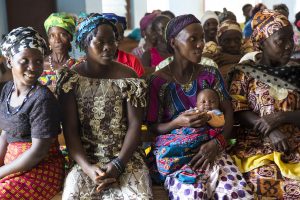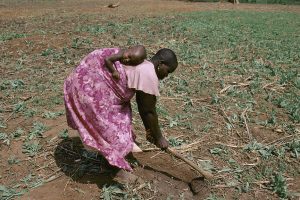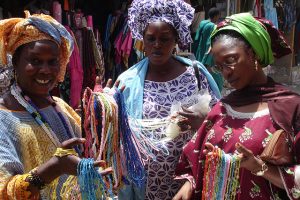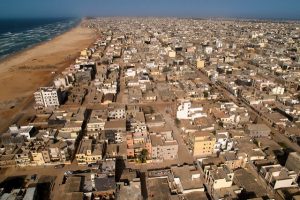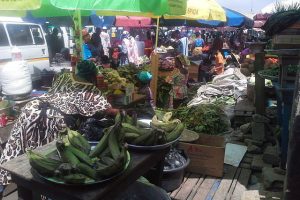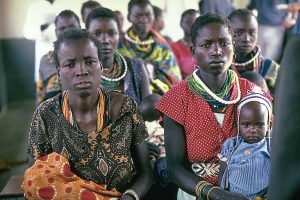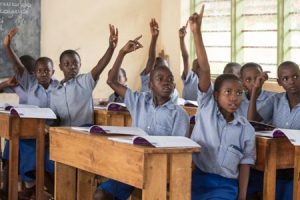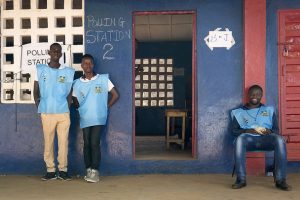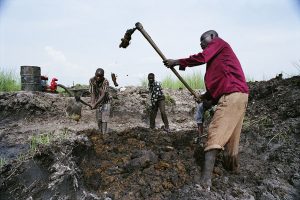Africa
Institutional Diagnostic Synthesis
The Institutional Diagnostic synthesis is the culmination of the research undertaken in the four EDI case studies in Bangladesh, Benin, Mozambique and Tanzania. The synthesis also reflects on two historical case studies – Taiwan and South Korea – and describes…
Relaxing Credit Constraints and Tenure Insecurity in Imperfect Markets
Issue: The 2013 World Bank report “Securing Africa’s Land for Shared Prosperity” states that more than 90 percent of Africa’s rural land is undocumented, making it vulnerable to corruption, land grabbing and expropriation. Helping citizens better secure property and land titles…
Randomized Inspections and Information Campaigns
Randomized Inspections and Information Campaigns: Impact on Compliance to the use of Electronic Fiscal Devices (EFDs) in Tanzania Issue: Governments across East Africa mandate that businesses use electronic fiscal devices (EFDs) to increase VAT tax compliance. These devices directly transmit…
Teacher rotation and student outcomes: Experimental evidence from Uganda
Focus of the study Can formal and informal institutions be leveraged to build human capital? Uganda’s education system is plagued by low personnel morale, low engagement and high absenteeism (estimated at 27%) among teachers. We propose to transform state-mandated transfers…
Quality, contracting, and competition in developing country supply chains
Focus of the study Low product quality – or inability to credibly signal high quality – may be a hindrance to firm growth and exporting in developing countries. In this project, we study how incentives for quality upgrading are passed…
Business-to-business information sharing and the foundations of reputational motives for contract compliance
Focus of the study How do firms develop reputations among potential business partners, and what are the costs or benefits of information sharing in the business-to-business context? Models of reputation and collective enforcement are predicated on a relatively unexamined premise:…
Mozambique Institutional Diagnostic
The Mozambique Institutional Diagnostic (MID) study officially started in February 2019 under a contract with the Development Economics Research Group (DERG) of the University of Copenhagen, in coordination with activities supported by DERG and UNU-WIDER in Mozambique. The Mozambique study is…
The Political Economy and Governance of Rural Electrification
Issue: Many developing country governments lack the capacity to directly implement large infrastructure and service delivery projects, instead hiring private contractors to perform public sector responsibilities: at 14.5% of GDP, low-income countries have the highest share of public procurement in…
Land rights and village councils in Tanzania
Focus of the study This research consists of a diagnostic survey to study how institutions can affect female land property rights in rural Tanzania following the legal reforms of the late 1990s. These reforms have established strong property rights on…
Social structures, political accountability, and effective public goods provision
Focus of the study This project explores the extent to which age sets, a traditional social structure in many African societies, can be leveraged to improve local oversight, governance, and the provision of public goods. Age sets are initiation rituals…
Individualization of property rights and population pressure
Focus of the study In response to increased land pressure, customary land tenure systems continue to evolve toward more individualization and transferability of rights in many parts of sub-Saharan Africa. This project aims to investigate how social norms related to…
Female political representation and its impact in Uganda
Focus of the study The goal of this research is to investigate the determinants and impacts of female political representation in Uganda. At the higher levels of government, Uganda has an impressive number of female representatives – primarily the result…
Stock-based versus flow-based redistribution (Zimbabwe and South Africa)
Focus of the study Our key research question is: How can a political and economic equilibrium be changed so that the economy embarks on a new development path that is not derailed irrespective of who governs? This question is important…
Building a marketplace for professional business services in Nigeria
Focus of the study Understanding the role of information, quality signalling, and third-party certification in building a marketplace for professional business services in Nigeria. The main question we address is: “Why don’t more SMEs use the market for professional business…
Training for productivity: An experimental evaluation of civil service reform in Ghana
Focus of the study Our central research question is: “Does training bureaucrats in productivity techniques improve management and productivity in Ghana’s Civil Service?” This project aims to improve the Ghanaian Civil Service’s productivity by designing, implementing and evaluating novel individual…
Ownership changes, management and efficiency in the Rwanda coffee sector
Focus of the study In this project we investigate the relationship between ownership, management and firm performance in the context of the Rwanda coffee sector. The industry is undergoing a significant process of consolidation through which large downstream exporters are…
Access to Justice in Kenya’s Magistrates’ Courts
Access to Justice in Kenya’s Magistrates’ Courts: Judicial Decisions as Public Goods Issue: Inefficiencies and lack of accountability in Kenya’s over-burdened and under-resourced magistrates’ courts result in wide disparities in the quality and application of justice. In 2016, for example,…
Engaging Citizens to Address Company-Community Conflict at South African Mines
Issue: Despite being a major source of employment, exports, and tax revenues, mining areas are often sites of protests, riots, and other forms of social conflict: between 2010 and 2013, South African police recorded over 10,000 crowd incidents near commercial…
Performance-Based Incentives in Multi-Layered Organizations
Performance-Based Incentives in Multi-Layered Organizations: Evidence from Sierra Leonean Community Health Workers Issue: Access to adequate healthcare remains a key challenge in many developing countries. This is particularly true in rural villages of Sierra Leone, where access to health facilities…
Benin Institutional Diagnostic
Benin is one of the focus countries for our studies to develop an institutional diagnostic tool. There are four stages to our approach for this research. Stage 1: Identification and justification of institutional areas Stage 2: Deep-dive thematic studies into…
Audit Selection under Weak Fiscal Capacity
Issue: Well-targeted tax audits are critical to deter tax evasion. In many advanced economies, the selection of which firm to audit is based on risk-based analysis systems. This require high levels of fiscal capacity to obtain the data, manage and…
Measuring the Effect of Technological Improvements and Compliance Nudges on Property Taxes
Evidence from a field experiment in Senegal Issue: Rapid urbanization and the growth of real estate developments in low-income countries has increased the potential of property tax as a source of untapped domestic resource mobilization. Unfortunately, in most developing countries, property tax…
Constructing Compliance: Reducing Tax Evasion Among Market Traders in Ghana
Issue: The taxes and licenses required for traders to operate in local markets are some of the most commonly used state revenue collection instruments in Sub-Saharan Africa. However, businesses frequently evade these levies, choosing to operate in the informal economy….
Can Transparency Improve Preferences and Norms in the Public Sector?
Issue: Political norms and citizen preferences could be key enablers of the poor quality of public services in developing countries. Politicians may, for example, deprioritize public service delivery improvements because citizens prefer elected officials that offer them private benefits, including government jobs or…
Recruitment, Effort, and Retention Effects of Performance Contracts for Civil Servants
Drawing on experimental evidence from Rwanda primary schools Issue: Skilled and intrinsically motivated public sector employees are critical to state capacity and the provision of key services, including education. Yet the capability to recruit, motivate, and retain this profile of civil servants…
Politician Entry, Selection, and Performance in Sierra Leone
Issue: In regions which consistently support a single political party, the most important selection of a representative is typically at the primary stage. However, in developing countries, primaries are frequently dominated by elites and conducted without transparency, decreasing the likelihood that parties select…
Tanzania Institutional Diagnostic
Tanzania is one of the focus countries for our studies to develop an institutional diagnostic tool. There are four stages to our approach for this research. Stage 1: Identification and justification of institutional areas Stage 2: Deep-dive thematic studies into…

